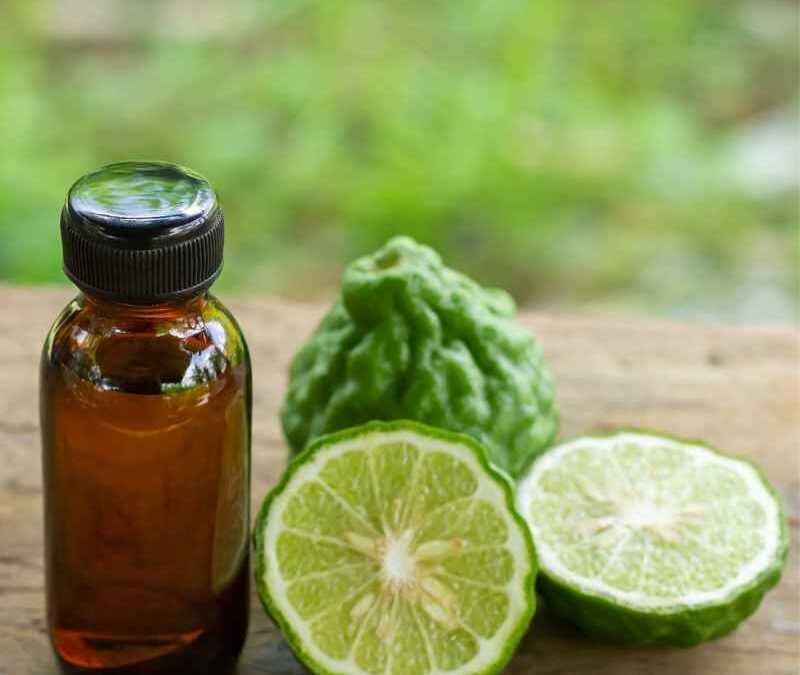Exploring the Enchanting Aroma of Bergamot Essential Oil
Welcome herbs and oils enthusiasts, I’m excited to walk you through the captivating world of bergamot (Citrus bergamia) essential oil! In this article, we’ll dive deep into the delightful scent profile of bergamot, its aromatic compounds, and the various ways you can enjoy its benefits. We will also look at some essential oils that blend well with Bergamot along with some helpful recipes. So what does Bergamot smell like?
Unveiling Bergamot
Bergamot essential oil might sound fancy, but it’s actually derived from the peel of the Citrus bergamia fruit, a close relative of the orange. You’ve likely encountered its fragrant presence in perfumes, teas, and even desserts. Let’s take a closer look at what makes bergamot so unique.
What Does Bergamot Smell Like?
Close your eyes and imagine strolling through a sun-kissed citrus orchard. That’s the essence of bergamot! The aroma is a harmonious blend of citrusy zest, freshness, and a subtle touch of florals. It’s as if the scent captures the very essence of a sunny morning.
Aroma Chemistry: The Magic Behind Bergamot
Bergamot’s enchanting scent comes from a symphony of natural compounds. While we won’t dive too deep into the science, it’s worth knowing a few stars of the show:
- Limonene: This compound gives bergamot its bright, uplifting citrus aroma.
- Linalool: It adds a delicate floral note, enhancing the overall complexity.
- Bergaptene: While this compound has its benefits, it’s worth noting that it can cause sensitivity to sunlight.
Aromatherapy Magic: Bergamot’s Benefits and Uses
Now, let’s talk about how bergamot can transform your atmosphere and mood. Its aromatic benefits include:
- Uplifting Vibes: Inhaling bergamot’s aroma can help lift your spirits and chase away those gloomy clouds.
- Stress Relief: Feeling stressed? Bergamot’s soothing scent might just be the antidote you need.
- Anxiety Aid: If anxiety’s got you in its grip, a whiff of bergamot can help calm those racing thoughts.
How to Use Bergamot Essential Oil:
- Diffusion: Add a few drops to your diffuser for an instant mood boost.
- Topical Application: Mix a few drops with a carrier oil and apply to your wrists or temples for a subtle perfume.
- Bath Time Bliss: A few drops in your bathwater can turn a regular soak into a fragrant oasis of relaxation.
Bergamot: A Fragrant Symphony in Perfumery
Bergamot isn’t just for aromatherapy; it’s also a star in the world of perfumery. In fact, it is considered a “top note” in fragrance blends, thanks to its zesty and fresh character. It plays well with other scents, adding a lively touch to perfumes and colognes.
Essential Oils That Blend Well With Bergamot
Bergamot’s delightful aroma is a treasure on its own, but when combined with other essential oils, it can create truly captivating scent profiles. Let’s explore some essential oils that blend harmoniously with bergamot to enhance your aromatherapy and crafting experiences.
Lavender: A Floral Symphony
Lavender and Bergamot are like a dream team. Lavender’s gentle floral notes perfectly complement bergamot’s citrusy charm, resulting in a balanced and soothing blend. This combination is ideal for relaxation and promoting a peaceful ambiance.
- Blend Idea: Mix 3 drops of bergamot and 3 drops of lavender in your diffuser for a calming and comforting atmosphere.
Citrus Companions: Sweet Orange and Lemon
Sweet orange and lemon essential oils share the citrus family with bergamot, making them natural partners. These oils combine to create a vibrant and refreshing aroma, like a citrus orchard in full bloom.
- Blend Idea: Try 2 drops of bergamot, 2 drops of sweet orange, and 1 drop of lemon in your diffuser to invigorate your space.
Elegant Florals: Geranium and Rose
For those who adore floral scents, consider blending bergamot with geranium and rose essential oils. This combination exudes elegance and a touch of romance, making it perfect for self-care rituals.
- Blend Idea: Combine 2 drops of bergamot, 2 drops of geranium, and 1 drop of rose in your roller bottle for a luxurious perfume.
Woody Warmth: Cedarwood and Sandalwood
If you’re seeking a grounding and comforting aroma, look no further than the woody scents of cedarwood and sandalwood. These oils balance bergamot’s brightness with a warm and earthy depth.
- Blend Idea: Mix 2 drops of bergamot, 2 drops of cedarwood, and 1 drop of sandalwood in your homemade room spray.
Herbal Harmony: Clary Sage and Basil
For a blend that’s both fresh and invigorating, consider pairing bergamot with clary sage and basil. This combination offers a unique herbal twist that’s both uplifting and energizing.
- Blend Idea: Create a DIY linen spray by combining 3 drops of bergamot, 2 drops of clary sage, and 1 drop of basil in a spray bottle filled with distilled water.
Spice and Everything Nice: Ginger and Cardamom
To add a touch of warmth and spice to your bergamot blend, incorporate ginger and cardamom essential oils. This combination is perfect for creating a cozy and inviting atmosphere.
- Blend Idea: Add 2 drops of bergamot, 1 drop of ginger, and 1 drop of cardamom to your personal inhaler for an aromatic pick-me-up.
A Culinary Twist: Bergamot in the Kitchen
Believe it or not, bergamot isn’t limited to aromatherapy and perfumery. You can find its delightful touch in the culinary realm too! Here’s how:
- Tea Delight: Bergamot is a key flavor in Earl Grey tea, lending its distinct citrusy note.
- Dessert Enhancer: A drop of bergamot essential oil can turn a simple dessert into a gourmet experience.
Safety First: Using Bergamot Essential Oil Responsibly
Before you dive into the aromatic world of bergamot, a few safety precautions are in order:
- Photo Sensitivity Alert: Bergamot can make your skin sensitive to sunlight. Avoid direct sun exposure after applying it topically.
- Dilution is Key: Always dilute bergamot essential oil with a carrier oil to prevent skin irritation.
- Patch Test: Before using bergamot on your skin, do a patch test to ensure you don’t have any adverse reactions.
- Culinary Uses: Only use essential oils that are labeled “food grade” for culinary uses.
Choosing Quality: Finding the Best Bergamot Essential Oil
Not all essential oils are created equal. To enjoy the true beauty of bergamot’s scent and benefits, consider these tips when choosing an essential oil:
- Look for Purity: Opt for oils labeled as 100% pure and natural.
- Check the Source: High-quality oils often come from reputable sources.
- Third-Party Testing: Brands that conduct third-party testing ensure their oils meet quality standards.
In Conclusion: Embrace the Bergamot Bliss
Bergamot essential oil isn’t just about its aroma; it’s about embracing a fragrant journey toward your well-being. Whether you’re diffusing it for a calming atmosphere or adding it to your skincare routine, bergamot has a lot to offer. So, go ahead, take a whiff, and let the enchanting aroma of bergamot brighten your day!
Have fun creating a life that naturally makes scents!
Shop:
Read Next:
Photosensitive Essential Oils Understanding Safety & Benefits
“Oh Happy Day” Calming Essential Oil Blend
The information provided here is intended for educational purposes only and is not a substitute for professional medical advice, diagnosis, or treatment. Essential oils are potent natural compounds that can offer various benefits when used appropriately.
Some of the links on this website are affiliate links, which means that we may earn a commission if you click on the link or make a purchase using the link. When you make a purchase, the price you pay will be the same whether you use the affiliate link or go directly to the vendor’s website using a non-affiliate link. By using the affiliate links, you are helping support our website, and we genuinely appreciate your support.



